Finding the Beauty in God’s Creation: Amy Kennedy & David Degler and John Sowers
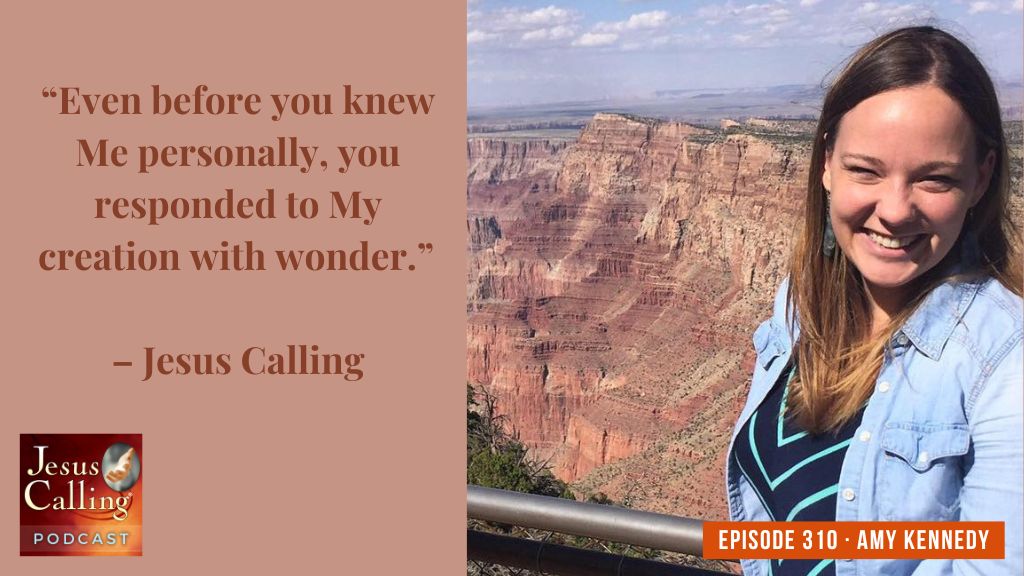
Amy Kennedy: Some of my most profound moments with God have been in national parks, and it’s one of the few spaces left in society where we can truly disconnect, be surrounded by God’s beauty, and just spend time with Him, learning and listening and discerning where He’s calling us.
Finding the Beauty in God’s Creation: Amy Kennedy & David Degler and John Sowers – Episode #310
Narrator: Welcome to the Jesus Calling Podcast. As we celebrate the origins of America with 4th of July events, it’s a great time to take a moment to reflect on the beauty of God’s earth, the people He created, and the ways that we are gifted to serve and be served by others.
Amy Kennedy and David Degler are part of a ministry called A Christian Ministry in the National Parks. Their ministry was formed to meet the faith needs of national park employees and has now grown into a mission to help everyone who visits a national park find the most beautiful manifestations of God’s creation in the wilderness of the national parks. John Sowers is an author and a father who developed a love for writing that he carried into adulthood through the letters his family loved to write—which started when his grandmother wrote him weekly letters while he was away at college. He carried that legacy forward by writing special letters to his daughters, which he shares in his latest book entitled Say All the Unspoken Things.
First up, we’ll hear from Amy Kennedy and David Degler.
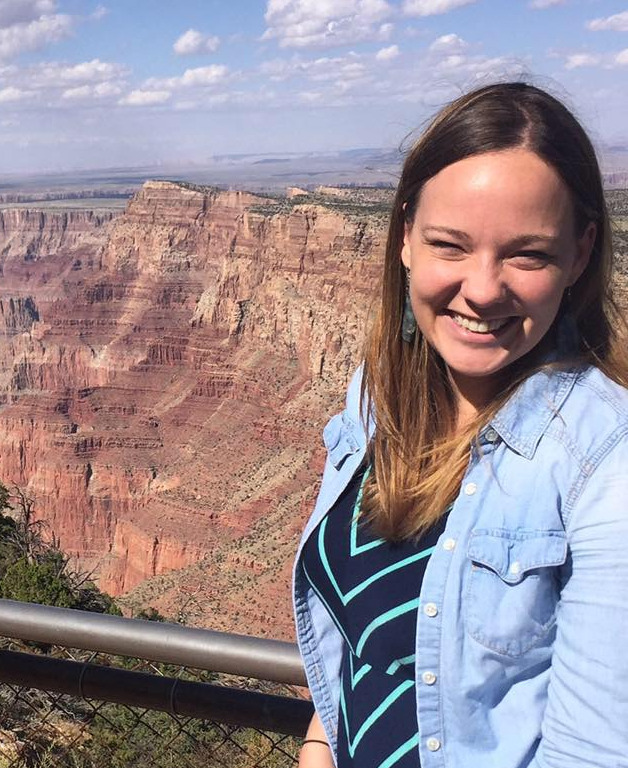
Amy: Hi, my name is Amy Kennedy, and I am one of the co-executive directors of A Christian Ministry in the National Parks. I have been around the organization since 2006 in every capacity, from ministry team member to the co-executive director.
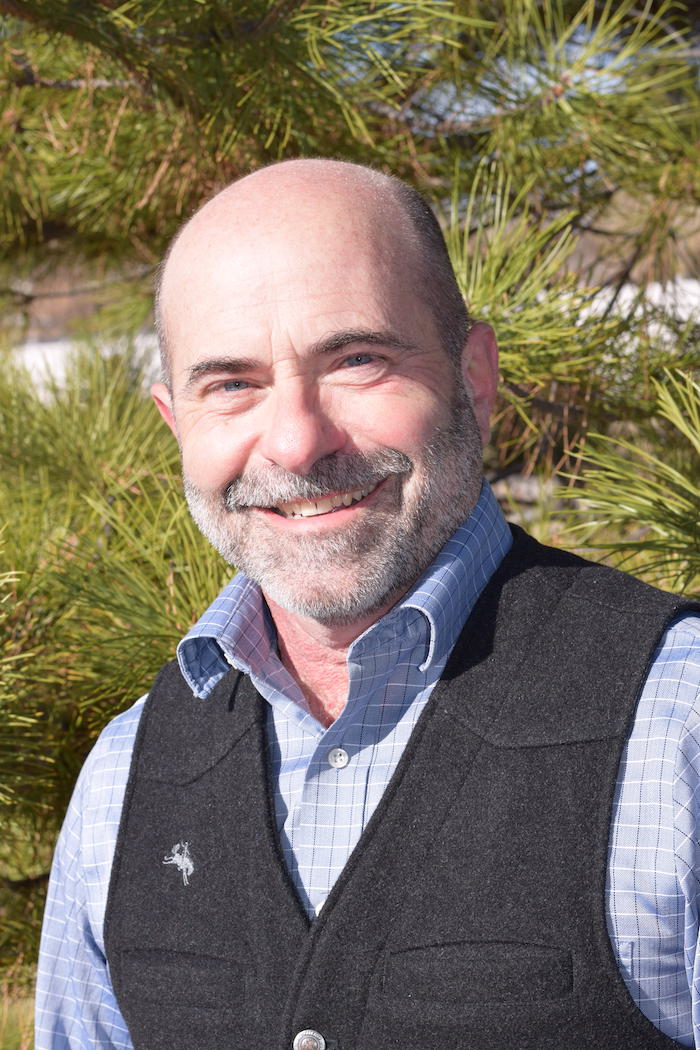
David Degler: My name’s Dave Degler. I’ve been with A Christian Ministry in the National Parks for ten years now. It’s been a lot of fun, but also very impactful in helping [people of all ages] to experience the parks and the ministry, and to explore their talents, skills, and gifts God’s given them.
A Love for God’s Creation Begins Early
Amy: I have always enjoyed the outdoors. I grew up in a family where my dad was a very avid outdoorsman. We would go on special dates with our mom and dad growing up, and my dad would always want to go camping or hiking or something outdoorsy.
When I was a freshman in college, there was a recruiter on campus for this very organization, and they asked if I wanted to go spend a summer in a national park. At first I thought, Who gets to do that? I said yes and went to Olympic National Park, which I had never been to.
I got there and thought, Oh my gosh, I’m about to spend a summer living and working in a national park rainforest. It was an absolutely life-changing experience for me. That summer, I learned so much about who I was, what God was calling me to, how to love people, and just really opened my mind for a bigger world. And so I got to spend that summer just really kind of turning a corner into who I feel like I have been growing into today.
“That summer, I learned so much about who I was, what God was calling me to, how to love people, and just really opened my mind for a bigger world.” – Amy Kennedy
David: I think the beginning of an appreciation for the national parks started when I was eight or ten. My love for the national parks started outside of the parks, probably, by living and growing up in Michigan on a lake and experiencing all of that that can offer: the boating and the hiking and exploring.
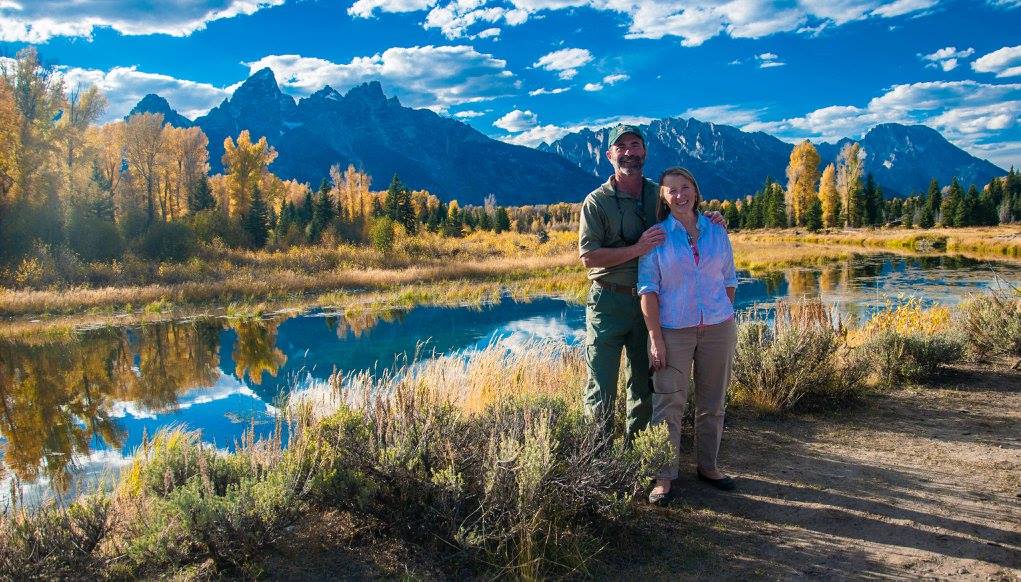
Once I landed this great job at ACMNP, which is the acronym that we always use for the ministry, I go back and remember my very first visit to a national park, which was the Smoky Mountains National Park, over fifty years ago. And a lot has changed outside of the park, but the park has remained the same. It’s been enjoyed by millions and millions of people, but it’s been protected and still seems pristine and beautiful and lush and accessible.
A Christian Ministry in the National Parks
Amy: So ACMNP has been around since 1951. We’re leaning towards our 75th anniversary and looking forward to some opportunities to expand and enhance the ways that we serve in the national park communities.
But to go back in time a little, there was a man named Warren Oast who spent his summer in Yellowstone National Park. He was a Princeton seminarian living and working in the park and saw this great need: those who were living and working in the park community were oftentimes isolated. There wasn’t necessarily a church right there in the national park. And so those who wanted the opportunity to worship God really had to go outside the park to do that or find their own opportunities through prayer and devotion and their own spiritual acts.
But he decided that the community there really needed an opportunity to worship. So he started, initially, a Bible study in the bar of Old Faithful and just started inviting his coworkers to join him. And through that, he ended up going back to Princeton, talking with his school, ended up looping in Yellowstone National Park to make this really special partnership that began what is today A Christian Ministry in the National Parks.
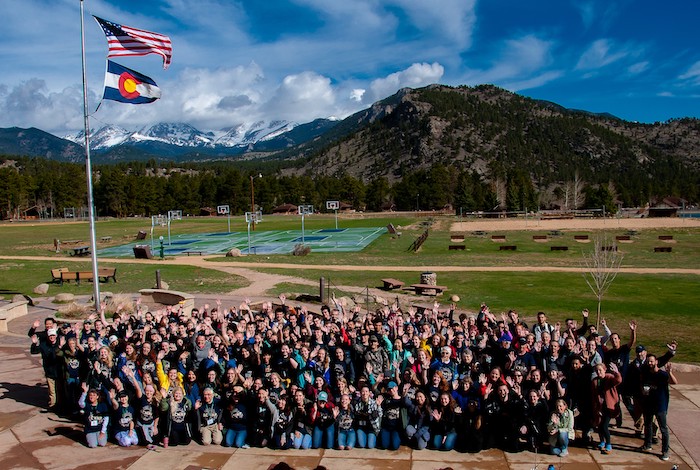
It’s changed over time, and it’s grown into more national parks, but really the heartbeat of [the ministry] is that we would provide a space for people to use the national parks landscape and the beauty that’s there to reflect the love of this great Creator by joining together from all denominations across the Christian faith to unify and express our love towards God.
“The heartbeat of [the ministry] is that we would provide a space for people to use the national parks landscape and the beauty that’s there to reflect the love of this great Creator.” – Amy Kennedy
David: These beautiful places are accessible to everyone. And there are a wide variety of ways to use them, including worship and quiet times in Bible study or praying and events that are focused around that.
Amy: Every year there’s some kind of difficult thing that happens in a national park, whether it be a tragedy—we’ve seen everything from a fire to employees who have passed away to even guests in the park having an encounter with an animal– or you name it, it’s probably happened in a national park. And when that happens, when tragedy strikes, our team members are the ones who are there because everyone there looks for the Christians, they look for those who might be the pastors of the national park. And here you have an eighteen to twenty-two-year-old sitting there in the midst of this awful tragedy, trying to figure out how to show up and show Christ’s love. And so they call us.
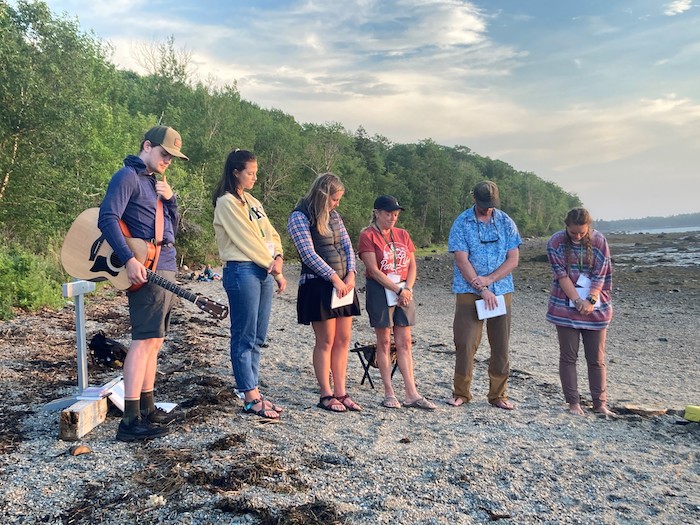
There was one summer in particular where we had a team member named Nelson who was in Glacier National Park. And within a week, two employees were killed for different reasons, and he was right there in the midst of that. He was able to help that community struggle through that grief and heal from it and really ultimately point everybody back to a much bigger thing. And that was God.
David: I believe it was that experience that led Nelson to go into vocational ministry now. Amy and I and the rest of our staff, I teach that everyone is in ministry, whether you’re in vocational, long term, professional ministry—or not.
There’s only five or six of us in the national office. There’s sometimes nearly 300 team members, generally, 200 to 300 team members in fifty different parks. And we show them what to do. We try to inspire them, instruct them, and God sends them, and then they get to explore their leadership capacities and skills. God has gifted them, called them, challenged them, and sent them to these wonderful places.
Amy: Our team members are intentionally working on their own leadership development while trying to be a great example of Christ in the place that they live, work, and serve. And then also showing love to their coworkers and to the community by offering places to worship and to engage with creation and God.
“Our team members are intentionally working on their own leadership development while trying to be a great example of Christ in the place that they live, work, and serve.” – Amy Kennedy
Ministry is Showing Up for People
David: Our worship services are so often in very remote locations. Coworkers will sometimes show up to the worship services, so there is that very practical ministry that’s offered to people where there’s an opportunity to worship in beautiful places while people are testing their worship leading skills and developing in those areas. But I think one of the more powerful ways that our teams support the community is just being there, is showing up—as Amy alluded to earlier—to expressing their faith in some wonderful, natural ways, that some of the most powerful ministry doesn’t happen in our organized events or the events that they plan, like Bible studies.
Very often we will say that this will be the hardest summer of your life, that it will be the best time of your life. And so through a really tough day, demonstrating that they still trust God and they still go to God for help and support and wisdom.
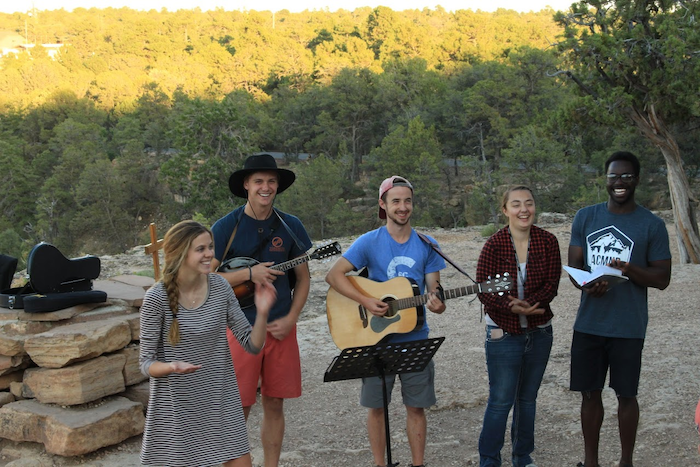
It really can be impactful. That’s why we encourage folks to press into these impactful interactions that very often start superficially, but over time, through their relationships, become deeper and more intense and more available, really, for people to ask the things that they’ve always wondered about but didn’t know anybody face to face that they could actually ask a question and here this person is. So I think that’s probably one of the most powerful things.
We also encourage our team members to embrace stewardship of the parks. Most Christians think of creation care, so we’ve adopted that and we invite people to create projects and to join the National Park Service and local support groups for the park to help clean trails or to pick up trash or to mark trees that need to be removed, to work with the Park Service and volunteer. We had a group in Zion National Park just last week that was pulling out weeds, invasive plant species, for the National Park Service under their direction. And that’s an important service, we think, to the parks and to God’s creation.
Finding Spaces in Nature to Heal
Amy: I had mentioned that I had spent a summer in Olympic National Park, and really, if I’m honest, I spent that summer there trying to escape some difficult things that were going on back home. So while I wanted to live in the national park and I knew it would be beautiful, I knew it would be an adventure. I also was secretly just trying to find a space to heal from some difficult things that had happened.
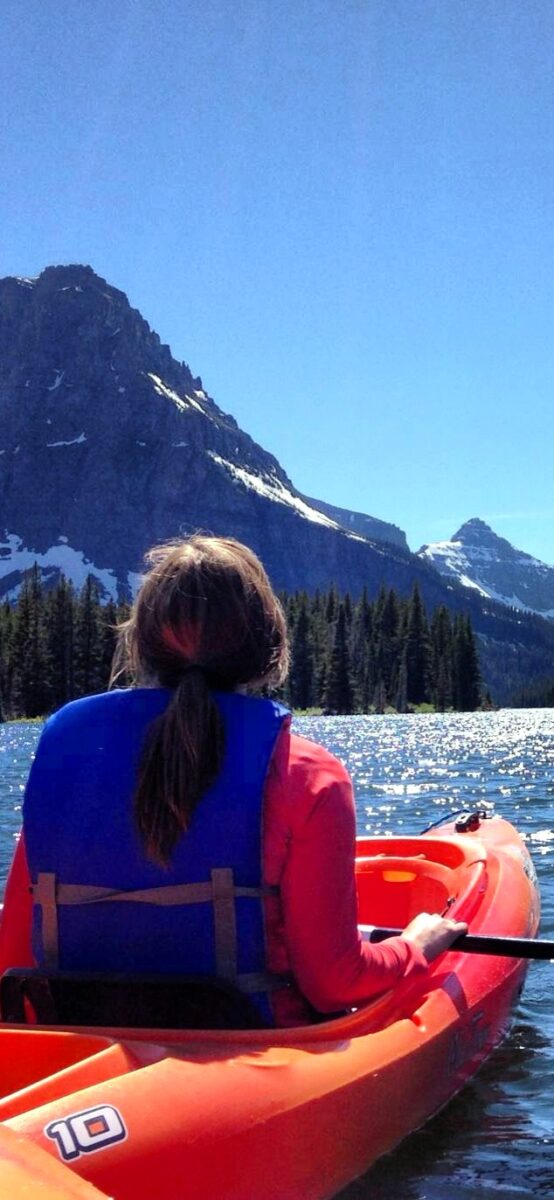
It rained every day for the first month I was there. And, you know, everybody there was really different than I was. I didn’t have the people who looked and thought like me, like the community I grew up in. I was all of a sudden surrounded by people who made life choices that were different from me, or people who were going through difficult things on their own. And then instead of looking to God or faith, they were looking towards things like drugs or alcohol or just really sad cycles of decisions. And so I had this kind of moment in the national park where I was sitting on a bridge, just looking at God’s creation, it was lightly drizzling. And as I looked out, I was kind of crying to God about some of the things I was going through and just realizing just how sad I was.
And so while I sat there crying out to God, I had this epiphany that everyone who was around me, while they were really different than I was, was also hurting and was also seeking something. And that’s why they were there. There was this community of people who were trying to escape equally difficult things, and they didn’t know God the way I knew God. I had a God to cry to, and they didn’t. And so it changed the course of my summer. It changed how I showed up in the ministry.
All of a sudden, after that epiphany, the sun came out, the summer got incredible. It was beautiful. Every single day I was hiking with people who were completely different from me. I became best friends and family with this community of people that were stuck at the end of this dirt road in Olympic National Park. And it changed the way that I then showed up in the world.
I left that summer, and I realized what ministry should be. It’s not sitting behind a pulpit and speaking to people that you never interact with. It’s being a part of a community, showing up daily, interacting with them, getting to know them, and figuring out how to share Christ’s love through your actions on the smallest level. And so I think through that experience, that’s really helped me want to stick around this ministry for as long as I have, to inspire others to have similar experiences.
“I left that summer, and I realized what ministry should be. It’s not sitting behind a pulpit and speaking to people that you never interact with. It’s being a part of a community, showing up daily, interacting with them, getting to know them, and figuring out how to share Christ’s love through your actions on the smallest level.” – Amy Kennedy
In Difficult Times, Seek God’s Beauty
Amy: Some of my most profound moments with God have been in national parks, and it’s one of the few spaces left in society where we can truly disconnect, be surrounded by God’s beauty, and just spend time with Him, learning and listening and discerning where He’s calling us. And so bring a journal. Spend time with God. The national parks are going to be one of the most beautiful places for that that you’ve ever been to.
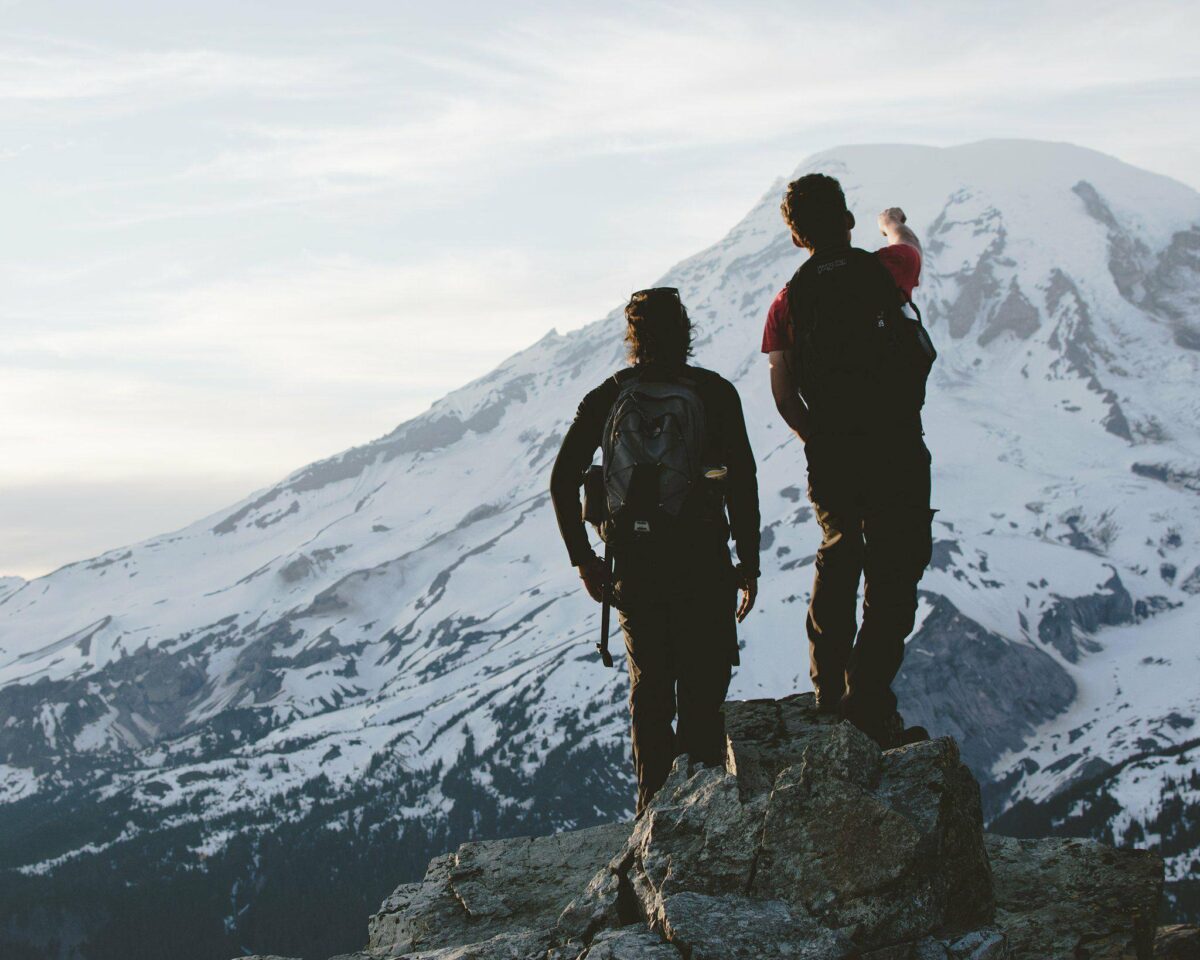
David: These days are chaotic, and it’s hard to focus, and we have busy minds that are easily distracted. At least that’s my personal experience, and especially over these last three or four years and all of the things that really have assaulted our country, our world, our culture, our churches, that we can be unfocused, unruly, and undisciplined. Devotional guides can help us in those areas where it focuses on a thought that is good and pure and scriptural and is motivated by God’s Word. And it can direct our thoughts when so often, when left unattended, our thoughts can ramble and be busy and caught up in all the distractions that surround us.
Perhaps now more than ever, we need tools like that and opportunities to get away to focus on what’s really important. Because so many times we’re focused on things that are absolutely not important, and we get drawn into those things. It’s so easy to get crushed by that and rush down the stream of these negative thoughts and ideas. And it’s just so powerful to have a clear, thoughtful moment and idea that can be generated by devotional guides like Jesus Calling.
Amy: I’ve taken [Jesus Calling] with me to the national parks before as kind of a guide. I feel like in life it’s really hard to quiet our minds enough to hear the voice of God. He is always talking to us. He is shouting out to us through the beauty of His creation, through the people that reflect Him.
We put a lot of barriers in the way of hearing God, whether that be technology or thoughts or feelings or just this need to be busy all the time. And so it’s a gift to be able to go to a place like a national park where that expectation is gone. You don’t have to sit there checking off a list of all the things you need to do. You can simply just be. You can go sit by the water with a devotion, with your Bible, with silence, which is a very rare gift these days. And sit in that silence and let your mind focus on the things of God.
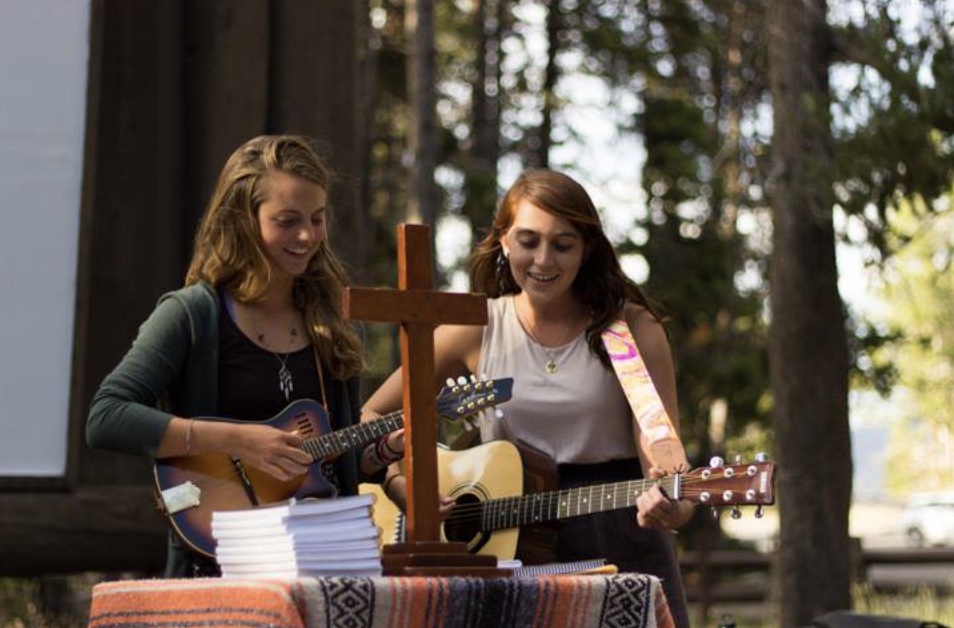
I think devotions are incredibly helpful because we’re not used to being quiet. And oftentimes if you’re sitting just in complete silence, if you’re anything like me, your mind starts still going to the things you’re supposed to do when you get back home or to the checklist that you didn’t finish. And so finding a Bible or a journal or a devotion guide to bring with you is a really good tool to help keep your mind focused on that silence, focused on listening to the Word of God, figuring out how Jesus is calling to you.
David: You can get lost in yourself a little bit and in your interaction with the Creator and with God to have a pretty powerful experience. And I think you’ll be blessed.
Narrator: To learn more about how you can get involved with A Christian Ministry in the National Parks, please visit www.acmnp.com
Stay tuned to John Sowers’ story after a brief message.
New Video Series Highlights Stories of Prayer
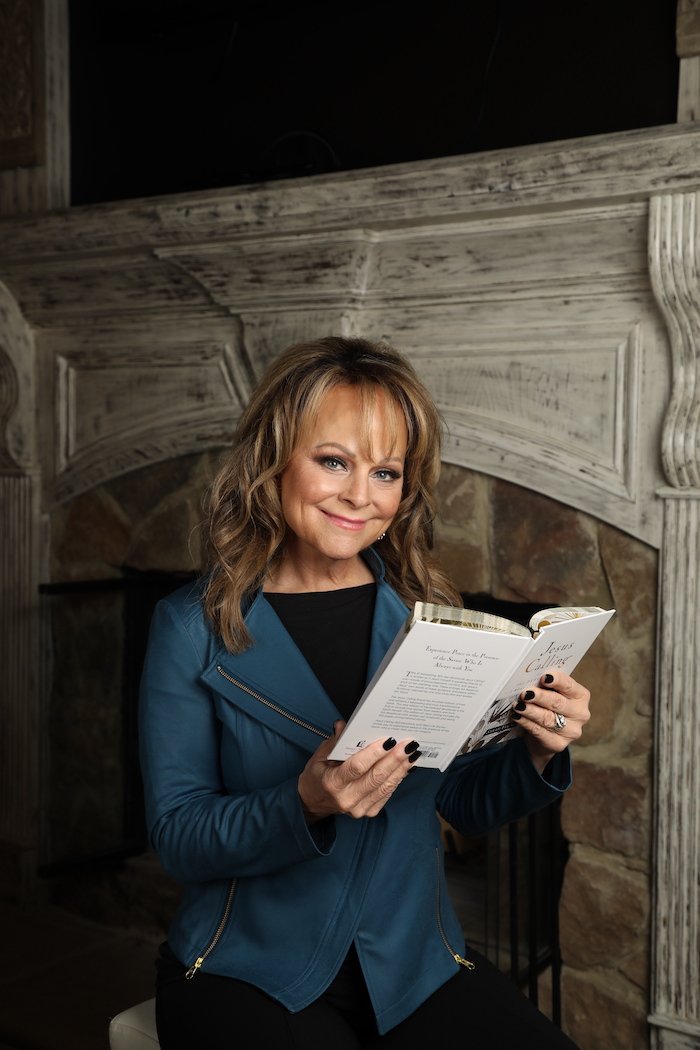
You’re going to love our newest video series called “Jesus Listens: Stories of Prayer!” Hosted by singer Susie McEntire-Eaton, the YouTube series features interviews with people from all walks of life sharing their touching stories of how prayer made a powerful difference.
Watch inspiring stories from the author and creator of The Simplified Planner® Emily Ley, entrepreneur Stephen Miller, and author and influencer Kim Douglas, plus many more.
New videos debut each month, so subscribe today so you don’t miss an episode!
Narrator: Our next guest is John Sowers, an author whose family has a history of writing letters that has recently taken on new meaning in his role as a father when he himself composed letters to his daughters as a touchstone of communication from him that they could carry into their lives as adults.
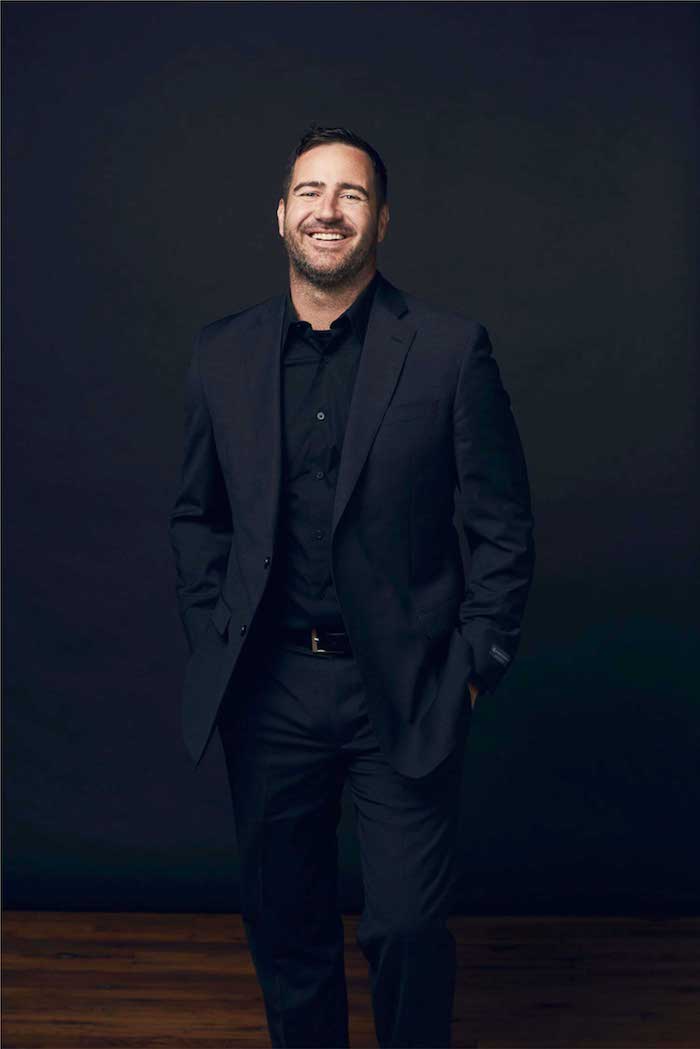
John Sowers: I was born in Arkansas, and I grew up hunting and fishing, and I had an older brother and played a lot of sports. I think I wanted to be a professional baseball player like so many boys, wanted to be a professional athlete. And so in college, I played through college and it kind of dawned on me that this was about the end of my ability and my opportunities.
It’s just interesting how it kind of came into ministry and writing. I always loved books and I always read books and wrote, and I wrote through college and wrote in high school. Writing has just been a real blessing and a real fulfilling thing that I feel like that’s why I was put on the earth. It’s almost like the Chariots of Fire scene, where he says he can feel the glory of God when he runs, like he’s designed to run. And so I hope that everybody listening can kind of find, in time, that thing. And sometimes it’s multiple things. But for me, it’s been writing and it’s been a thing that’s been deeply confirming and affirming to get to do.
“Writing has just been a real blessing and a real fulfilling thing that I feel like that’s why I was put on the earth.” – John Sowers
A Legacy of Letter Writing
I’ve been real blessed to come from a family of letter writers. My grandmother raised me and when I moved away to college, she wrote me a letter once a week and she had these little Monet prints, like the artist Monet, water lilies and all of the different prints by Monet. And she would write a long letter in each one—I don’t know how many words—but she would fill the whole thing. She would talk about how she’s praying for me, and she’s proud of me and she loves me. And so my grandmother found a way to show up in my life through letters. And every Tuesday I would rush to the P.O. box in college. That letter would literally be the highlight of my week, and it’d be like a touch from home, the saying like, “We’re thinking about you. Love you. Praying for you.” And it was transformative in my life.
So my great-grandfather wrote all these letters to his wife, and these date back in the 1800s. I still have these letters from my great-grandfather to my great-grandmother, and he was wooing her. I have a whole stack of these beautifully cursive written letters from my great grandfather to my great grandmother. And so it’s been really neat to be from a family of letter writers and then get to carry on that tradition to write these letters to my daughters.
“I have a whole stack of these beautifully cursive written letters from my great-grandfather to my great-grandmother. And so it’s been really neat to be from a family of letter writers and then get to carry on that tradition to write these letters to my daughters.“ – John Sowers
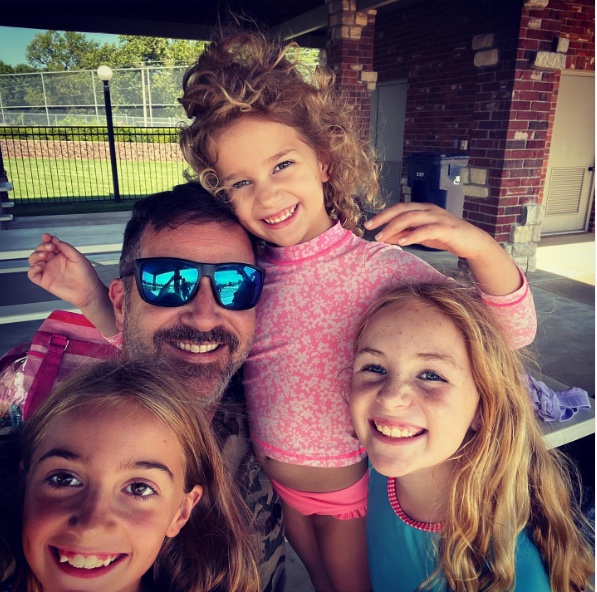
It was born out of my mom passing, you know, their grandmother passing, as well as this COVID experience. I sat down to write it in January of 2020, and two months later, COVID kind of shut down the world. And so as I begin to think about, you know, If I had forty letters to write to my daughters, what would I say?
And when we have that urgency of death kind of in the back of our mind, looming over us, what would we say to people who love us, to people we love? I don’t really know how to say it other than my heart bursting as I’m reaching as deep into myself as I can to say things to my daughters that hopefully they’ll read after I’m gone and my grandchildren and my great-grandchildren, whom I may never know. What would I want to say to my daughters who I love so dearly and what would any of us say?
There’s a sense that death has an urgency to it, and death is something that’s kind of knocked on all of our doors in the last few years, we’ve had to lock ourselves in rooms, we’ve had to wear masks. Some of us unfortunately have lost loved ones, and most of us probably have known someone that we lost. And so there’s an urgency that comes to that. It changes our lives like, Wow, my mom is gone. My grandmother’s gone. I just had a friend die, or whatever. And when those things happen, I think there’s a real opportunity to create this good sense of urgency of, Wow. Do my friends know how much I love them? Have I forgiven people? Am I holding on to grudges? Have I expressed my full heart to my children or to my spouse or parents? Have I said all the unspoken things to them?
“Do my friends know how much I love them? Am I holding on to grudges? Have I expressed my full heart to my children or to my spouse or parents? Have I said all the unspoken things to them?” – John Sowers
Turning to God Through Our Losses
You know, I think when we lose someone close to us, especially someone who is kind of seismic and almost like a pillar, you know, like for me, my mom and my grandmother. I mean, they basically held up the sky for me. So I knew if they were gone, I would be in trouble. As a kid, I grew up feeling that way. I felt like they were like a bomb shelter, you know, they had their hands over my head and they were keeping the world from crushing me. And so when they left, it was a very real sense of just being gone.
I had a friend that helped me and he said, “Just remember the love that your mom gave you and let that strengthen you and let that shape you and the man you want to be.” And so that’s that really, really helped because part of me probably skidded off into some despair, into some loneliness and probably not drawing close to God in the ways that He desired. I know I didn’t. And so I had some really great friends who showed up for me and who helped point me to God and, in some ways, helped be the hands and feet of God to me.
“[When I lost my mother and grandmother] I had some really great friends who showed up for me and who helped point me to God and, in some ways, helped be the hands and feet of God to me.” – John Sowers
I want to read a prayer, this is Jesus Listens, and it’s from December 14th. It says:
Your amazing Love is sacrificial, unfailing, priceless, and boundless—reaching to the heavens. It shines so brightly that it can carry me through all my days, even the darkest ones.
When I get to the end of each day, it’s time to declare Your faithfulness that reaches to the skies. As I look back over the day, I can see how skillfully You guided me and opened up the way before me. The more difficulties I encountered the more You enabled, empowered, and equipped me to overcome the obstacles.
It’s that daily connection CS Lewis talks about. It happens first thing when we wake up, that all of our hopes for the day rush out, it’s like wild animals. And our first job is to push back those wild animals and to let that other voice come in—that other, stronger, more peaceful voice come in.
I think it’s a real temptation for us and for me to wake up, open Facebook, wake up, open Instagram, start scrolling, and to miss that connection, to miss that magical moment in the morning when we can wake up and we can connect. And I’m so thankful for Jesus Calling, that it encourages that rhythm that’s so important in any kind of relationship, especially in our relationship with God. And it’s a rhythm that I’ve kept at times and I’ve seen God really work through and bless.
Narrator: To learn more about John Sowers’ social justice efforts, as well as his most recent book, Say All the Unspoken Things, go to www.johnsowers.com
If you’d like to hear more stories about finding beauty in God’s creation and through His people, check out our interview with Rick Steves.
Next Week: Sara Gruber
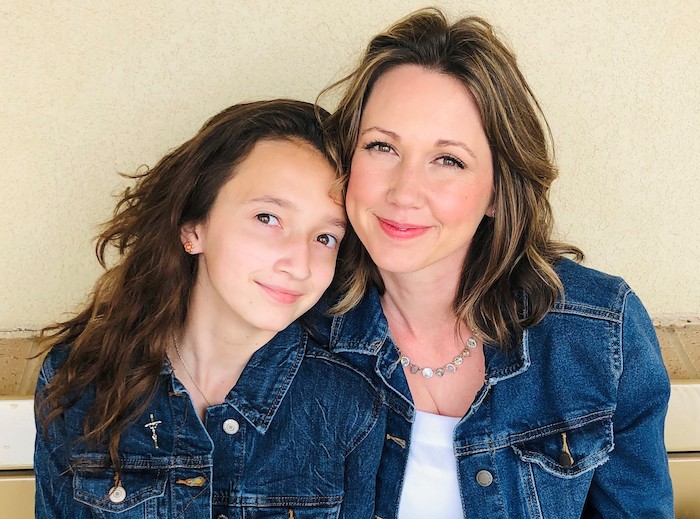
Narrator: Next time on the Jesus Calling Podcast, we’ll hear from Sara Gruber, a woman who battled chronic illness and through it, found the unexpected gift of a closer relationship with God.
Sara Gruber: Nobody understands what it’s like to live inside my body except God and me, and it led me to this complete dependance on God. I could explain all of my symptoms. I could explain what I felt and what I was going through. But I felt like God was the one I was living it with. And so there was this increased dependence on Him. It was an unexpected gift. And I’d prefer not to be sick, but if all of this is to bring me closer to God, then I’m all in.

